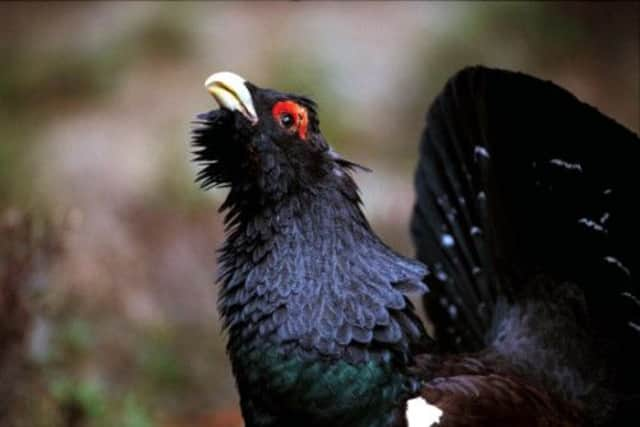Row brewing over transfer of support


The proposed move, part of the next common agricultural policy (CAP) will take effect in January 2015. When the political deal was struck in Brussels in the summer, member states were given a degree of flexibility in deciding how much cash went into the two distinct support pillars of the CAP.
Cabinet secretary Richard Lochhead revealed that the transfer from pillar one – direct support - would be 9.5 per cent, less than the permitted 15 per cent which had been demanded by environmental bodies.
Advertisement
Hide AdAdvertisement
Hide AdStuart Housden, director of RSPB Scotland, said his organisation was “very disappointed”, given that the Scottish Government was failing to meet its own national performance indicators for both farmland birds and for wildlife sites.
“Farming is the key influence on this, and by starving agri-environment programmes of funds – each 1 per cent of modulation is worth £6m per annum – they will not reverse the fortunes of wildlife in Scotland any time soon,” he said.
He added that over the lifetime of the Scottish rural development programme (SRDP), which will administer the spending, the decision would cost the environment £220m.
One major gripe for the RSBP was the amount of cash that would continue to go into the less favoured area support scheme (LFASS). By RSPB’s reckoning, over the lifetime of the proposal up to 2020, hill and sheep farmers will receive £459m under the proposed shift in support while all agri-environment schemes will get £365m.
“The commitment to maintain funding for LFASS is not surprising but this money should be much better targeted to help farmers and the environment.
NFU Scotland also expressed “disappointment”, but its concern was the removal of any support money from farmers.
Union president Nigel Miller said: “This announcement follows a disappointing budget settlement for our direct support funds and any further cuts to pillar one support will be very challenging for Scottish farming businesses.
“Shifting significant funds to pillar two and potentially holing our pillar one budget below the waterline risks further undermining our vulnerable farming sectors.
Advertisement
Hide AdAdvertisement
Hide Ad“We will be urging Scottish Government to adopt a transfer rate closer to 7.5 per cent and make use of the option to review the rate in 2017.
“We maintain that it is better to target direct support payments at active farm businesses across Scotland to enable them to continue to underpin all facets of rural development – prosperous local economies, flourishing environments, and thriving rural communities. The pivotal role that farming plays will be under threat if too much direct support is withdrawn too soon.”
Making the announcement – part of a mini-consultation with responses due in by Monday 16 December, Lochhead stressed the poor share of the CAP budget given to Scotland as a consequence of the attitude of the UK government.
“Due to the atrocious negotiating and budget decisions taken by the UK government, the reality is that, unless a transfer is made, our rural development budget will not be able to meet all the demands and obligations placed upon it,” he said. “Indeed,[UK Secretary of State] Owen Paterson argued for a ‘substantial reduction’ and phasing out of pillar one payments but thankfully he did not succeed and we secured much-needed continued support for Scottish agriculture.”